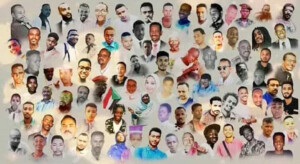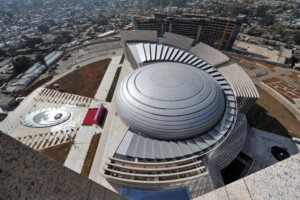June 3 Massacre investigation committee forced to suspend its activities
Nabil Adib, head of the independent investigation committee researching the violent break-up of the sit-in in front of the army command in Khartoum on June 3, 2019, announced that the committee’s work has been suspended. He said that it is not possible to continue activities under the current military authorities.
 Nabil Adib (SUNA
Nabil Adib (SUNA
Nabil Adib, head of the independent investigation committee researching the violent break-up of the sit-in in front of the army command in Khartoum on June 3, 2019, announced that the committee's work has been suspended. He said that it is not possible to continue activities under the current military authorities.
In an interview with Radio Dabanga’s Sudan Today programme, Adib explained that it is impossible for foreign teams to examine the evidence without an independent civilian government.
He said that visits of examination teams to Sudan require permissions from authorities “and logistical means to enable the teams to enter Sudan and facilitate their movement inside the country” and noted that the authorities earlier refused to grant a team from Argentine permission to enter the mortuary.
Adib also explained that, since the October 25 military coup, the costs of the committee’s office were not paid for by the authorities and that the team members were now paying with their own money.
He also stressed the necessity of conducting a security check at the office before restarting work to ensure that no listening devices have been planted.
Nabil Adib is a prominent lawyer and human rights defender in Sudan.
In March, the committee was also forced to pause its activities after its office was seized by security forces. They prevented the committee's employees from entering the premises and from taking any equipment belonging to the committee.
At the time, Adib also stressed that it was important to make sure that the committee's documents were not tampered with and that a security check should be conducted at the building to ensure that there were no equipment items or tools that could be used to reveal secret information included in the investigation.

violently dispersed in the June 3 Massacre (RD)
June 3 Massacre
On June 3, 2019, two days before the end of Ramadan, the large sit-in in front of the army command, was broken up with excessive violence. More than 186 protesters were reportedly killed. The bodies of 40 of them were found floating in the Nile. More than 700 others sustained injuries, and at least 100 people went missing in the June 3/Ramadan 29 massacre.
The sit-in was the result of the military coup. Since December 2018, large protests were organised to pressure the then ruling Omar Al Bashir to step down. In April, the dictator was deposed in a military coup. However, protesters continued to occupy the space in front of the Ministry of Defence to demand the military cede power to a civilian government.
Two months later, on June 3/Ramadan 29, the people at the sit-in were attacked by government forces.

the protesters who were killed (social media)
Investigation committee
Upon request of former PM Hamdok, an independent national commission of inquiry into the June 3 massacre was formed in September 2019, headed by Nabil Adib. The commission began collecting testimonies, photos, and video recordings of more than 3,000 witnesses and started in-person questioning of the military members of the Sovereignty Council last year.
During last year’s commemorations, Hamdok admitted that “complicated ties” with security forces “has sometimes slowed down justice and delayed the submission of information” required by the committee.
The information gathered by the committee shines a light on the role of the military and security forces, who took power with the October 25 military coup, in the massacre.
“The result [of the investigations] could lead to a coup d’état or to mass unrest in the streets,” Adib said in an interview on May 4, 2021, before the coup.











 and then
and then